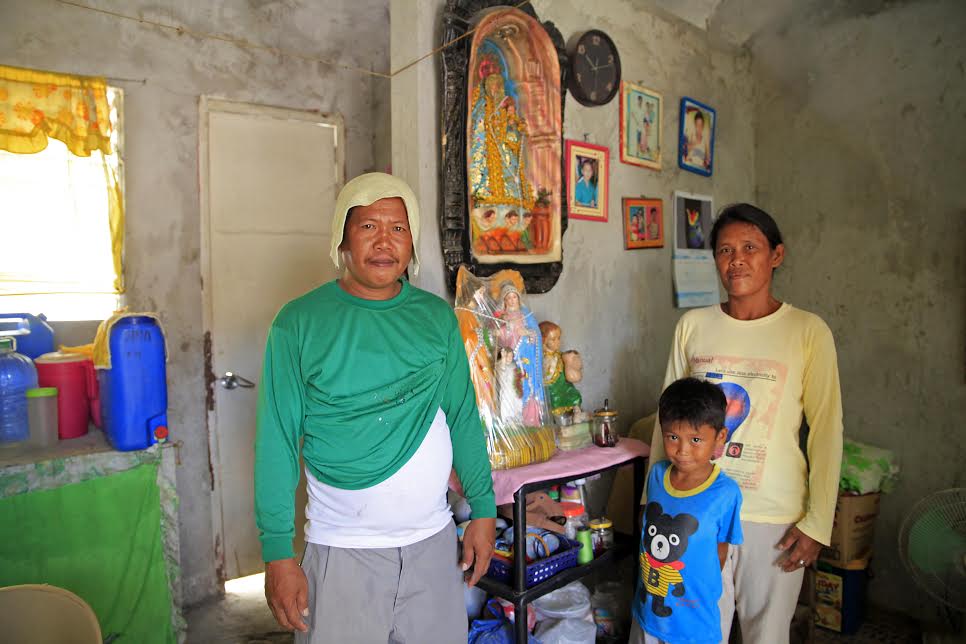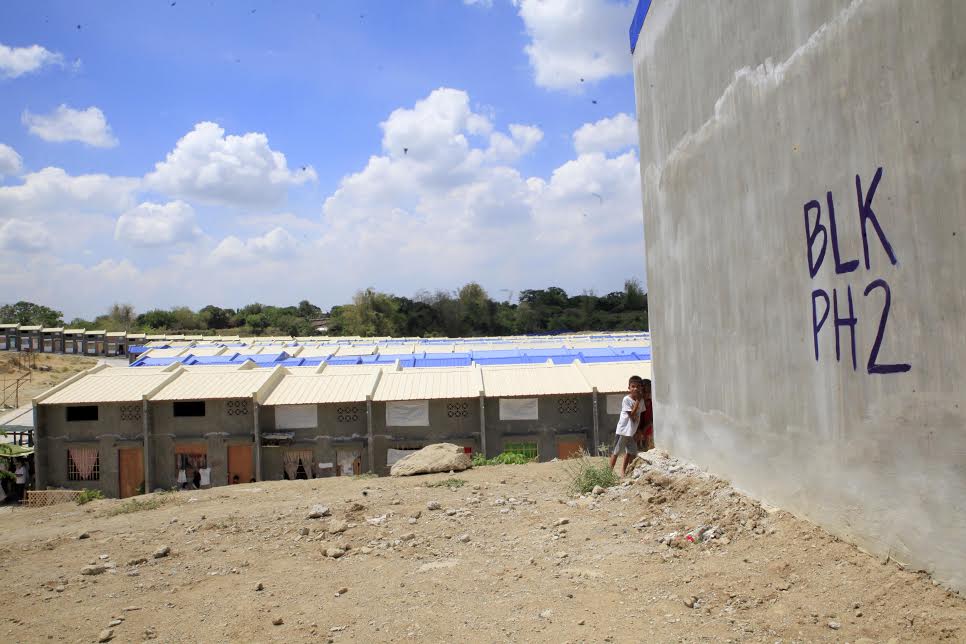PANDI, Bulacan – Georgina Toston appeared at peace inside a box-like concrete structure in a government resettlement site in this town.
At a glance, one can see everything that’s inside the 21-square meter footprint – a small dining table, a wooden counter holding gallons of water, an altar, several condiments.
A concrete divider led to a doorless room, where the Toston family sleeps, next to that is a smaller room with a toilet bowl, concealed only by a plastic curtain.
The unit has provision for an upper floor, but which has yet to be constructed.

Georgina says she would rather have electricity and water first before adding extra living space in the prospective loft or attic.
Georgina’s family was one of the more than 5,000 members of the Kalipunan ng Damayang Mahihirap (Kadamay), a militant urban poor group, who in March began to settle in unoccupied housing units in this government project intended for members of the police, military and jail guards.
For two years, she has been shuttling from one office to another to inquire about her family’s application for a slot in a mass housing project in Caloocan City.
She said some of the other Kadamay members have waited longer to have a house. Thus, when the group decided to occupy Pandi, she did not think twice about wading into the action.
Georgina said the structure was far from livable, but, at least, they can call it their own.
Not so fast, though, according to Senator JV Ejercito, who, together with Representatives Albee Benitez, Gary Alejano, Strike Revilla, Ben Evardone, Emmi de Jesus and Arlene Brosas, visited the settlers on Tuesday.
Ejercito and Benitez are the chairpersons of the committee on housing and urban development of the Senate and the House of Representatives, respectively.
Ejercito said there’s no such thing as free housing, explaining that it would not be fair to those who work hard to pay for their shelter.
House-for-work
The poorest of the poor can own their own homes if they sweat and toil for it, Benitez said.
He proposed a “sweat equity” program that will allow low-income families to contribute labor to finish the construction or repairs of their house, and also pitch in time for community work.
He said the house-for-work scheme could either be toward the amortization payments of the Kadamay members or for the maintenance and development of the community since the local government unit does not have a budget for it.
“Kung hindi nila kayang bayaran, pagpawisan na lang nila (If they cannot afford to pay for it, at least they can do it by contributing labor),” Benitez said.
The lawmaker said that qualified Kadamay beneficiaries, after due vetting, can serve as street sweepers in the community, collect garbage, help in home repair and maintain cleanliness.
Gloria “Ka Bea” Arellano, Kadamay chairperson, maintained that public housing should be free.
“But community development costs, such as maintenance and public facility construction among others that will directly benefit the people, this should not be a problem,” she said.
“All of us, the senators included, want housing projects to be safe and sustainable. We should all work hand-in-hand to bring about good community life,” Arellano added.
Romuel Alimboyao of the National Housing Authority-Central Luzon Office said the agency’s collection crashed by 50 percent after the Kadamay occupation. The legitimate recipients had questioned how the Kadamay members could get their houses for free.
Ejercito said the fall in collection was “very alarming.”
“This incident sets a precedent in all housing projects. How can we continue to build houses if we won’t be able to collect?” he asked.
Can of worms
During the site visit, Benitez observed a “mismatch” between the housing projects being undertaken by the National Housing Authority (NHA) and the needs of its beneficiaries.
The 21-square meter houses, for example, appeared to be the standard size being built by the agency, but the lawmaker said that beneficiaries have their respective needs.
Some police or military personnel can afford to pay for a bigger unit because they are earning salaries.
“What’s very concerning is that we keep on producing housing units that are not really acceptable to the beneficiaries or are lacking in the basic services,” Benitez said.
Of the 66,000 housing units built by NHA all over the country, only about 8,000, or 2 percent, are occupied.
“This occupation of Kadamay unraveled a lot of issues about the country’s housing sector, which we didn’t pay attention to in the past years,” Benitez said.
The lawmaker filed House Resolution No. 875 seeking an inquiry into the takeover of Pandi housing units.
“The ‘occupy’ Pandi incident should be an opportunity for Congress to look into the current resettlement programs of the government … in order to identify possible necessary programs and policy interventions,” the resolution said.
Click and watch this video report by News5’s MaeAnn Los Baños:

